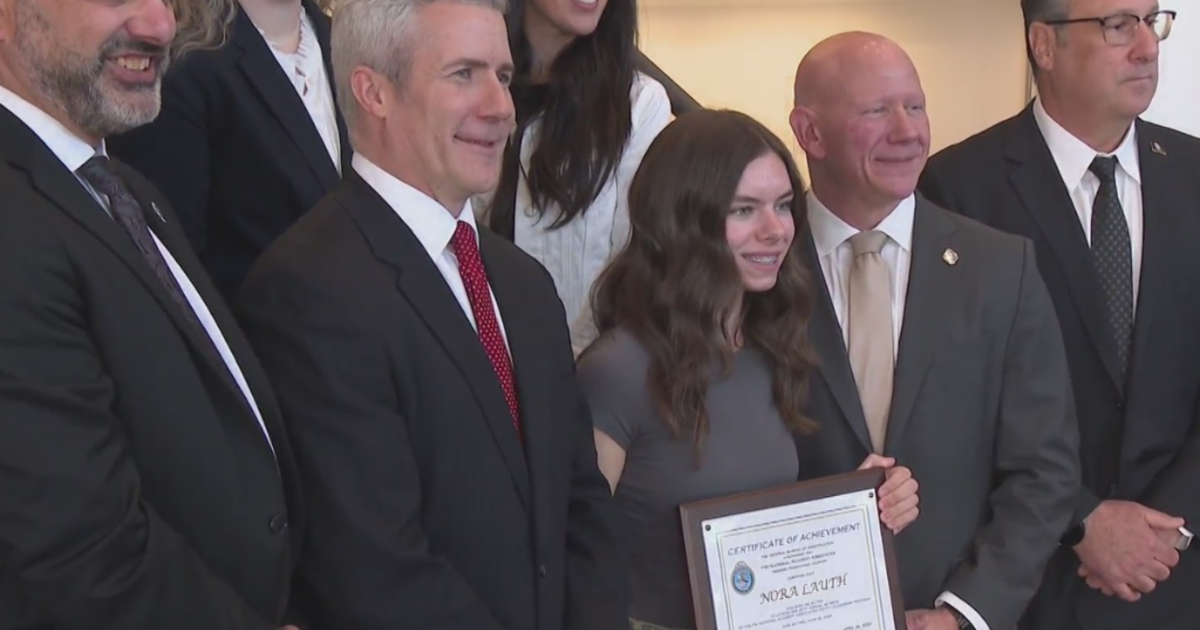Implanted Telescope May Help Reverse Effects Of Macular Degeneration
PITTSBURGH (KDKA) - Macular degeneration is one of the most common causes of blindness or visual impairment in people over age 50.
However, some doctors are now reversing it with what they're calling a miracle treatment.
"About 10 years ago, I established my own band, where I played electric bass and halfway through, I couldn't read the music. Well, you know as a musician, it's rather nice to be able to read the music," Marie Mueller said.
Mueller has macular degeneration - a condition where she has lost the central part of her vision.
"I cannot drive and I cannot read and I can't recognize faces very well," she said. "They'll come up and say all kinds of nice things to you, but you don't know who you're talking to."
"When they look directly at someone for example, they may miss the nose and the eyes," Eyeopolis Opthalmologist Dr. Viki Christopoulos said.
Marie had an evaluation for an implanted telescope, which approved by the FDA last year.
The idea is to make images larger so that the unaffected part of the retina, or back of the eye, can help you see.
"If she'd regain even half of what she lost, I think it would just be tremendous to give her more independence," Mueller's son, Jim, said.
The first step is a simulation with a hand-held telescope that mimics what the miniature, implanted version would do.
"You rely on your peripheral vision, and you find your best spot of peripheral vision, and always line that up with the telescope. That becomes more and more natural the longer you have the scope," Blind & Vision Rehab Services Optometrist Dr. Hacker said.
The telescope is implanted as a one-hour, outpatient procedure.
The rehab afterwards can take months. Patients have to train themselves to use one eye for close up and the telescope eye for distance.
The cost of the device is just under $16,000 and can be covered by Medicare. You must be at least 75-years-old, and you can't have any genetic retinal conditions as the reason for vision loss.
And if you already have implanted lenses, you're out of luck because it is only available to people who have not yet had cataract surgery
Marie did not qualify for the procedure because of mild glaucoma.
RELATED LINKS
More Local News
More Health News
More Reports From Dr. Maria Simbra
Join The Conversation, Like KDKA On Facebook
Follow KDKA On Twitter



